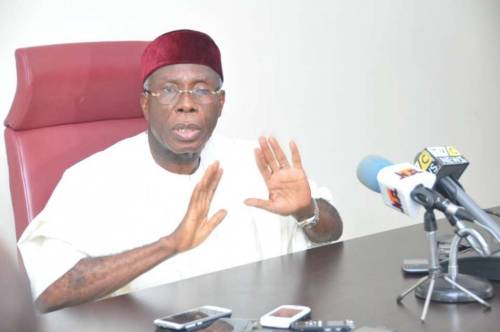Audu Ogbeh, Nigeria’s Minister of Agriculture and Rural Development, says 90 per cent of the rice consumed in the country is produced locally.
Ogbeh revealed this on Tuesday at the 2019 Annual Research Review and Planning meeting, which held at the Balarabe Tanimu Conference Hall at the Institute for Agricultural Research (IAR), Zaria, Kaduna State.
Ogbeh, who was represented by Karima Babangida, the Director of Extension Services in the ministry, said this was achievable to local producers because of the backing they received from present administration, noting that the country is shifting “to eating what we grow, rather than eating imported food’’.
He said: “One very good example that we see today is the home-grown Nigerian rice. Hitherto, Nigeria has been a major and largest importer of rice from Thailand and this implies largest importer in the world.
“But today, we have been able to achieve a paradigm shift in the right direction and we are now producing 90 per cent of the rice we eat in the country, I think we should appreciate our farmers here.
“Nigeria does not only have the capacity to feed itself, it also becomes a major actor in agricultural exports to other African countries, Europe and American countries, including the Far East, especially China.”
He said other sectors of the agriculture economy are witnessing the same trend and that with joint efforts of stakeholders, the country can achieve balance of trade in food items.
He pointed out the need for all stakeholders to collaborate to continue to develop the great potential in the country.
Ibrahim Garba, Chairman of the occasion and the Vice-Chancellor, Ahmadu Bello University (ABU), Zaria, noted that the future of the Nigerian economy lay on the shoulders of agriculture.
Garba, who was represented by Prof. Ezra Bako-Amans, the Deputy Vice-Chancellor (Academics), said: “Nigeria has all it takes to lead the African trans-border trade in food and fibre. It can cut its global share too in a number of crops it has comparative advantages in their production.
“The world’s cotton economy for instance, is about 1 trillion dollars. Needless to say, that cotton used to be one of the most important fibre crops in Nigeria, but down the line, we lost relevance on this crop.
“With the current renewed focus on agriculture, this glory can be reclaimed and Nigeria can have her fair share in the global cotton industry.”

